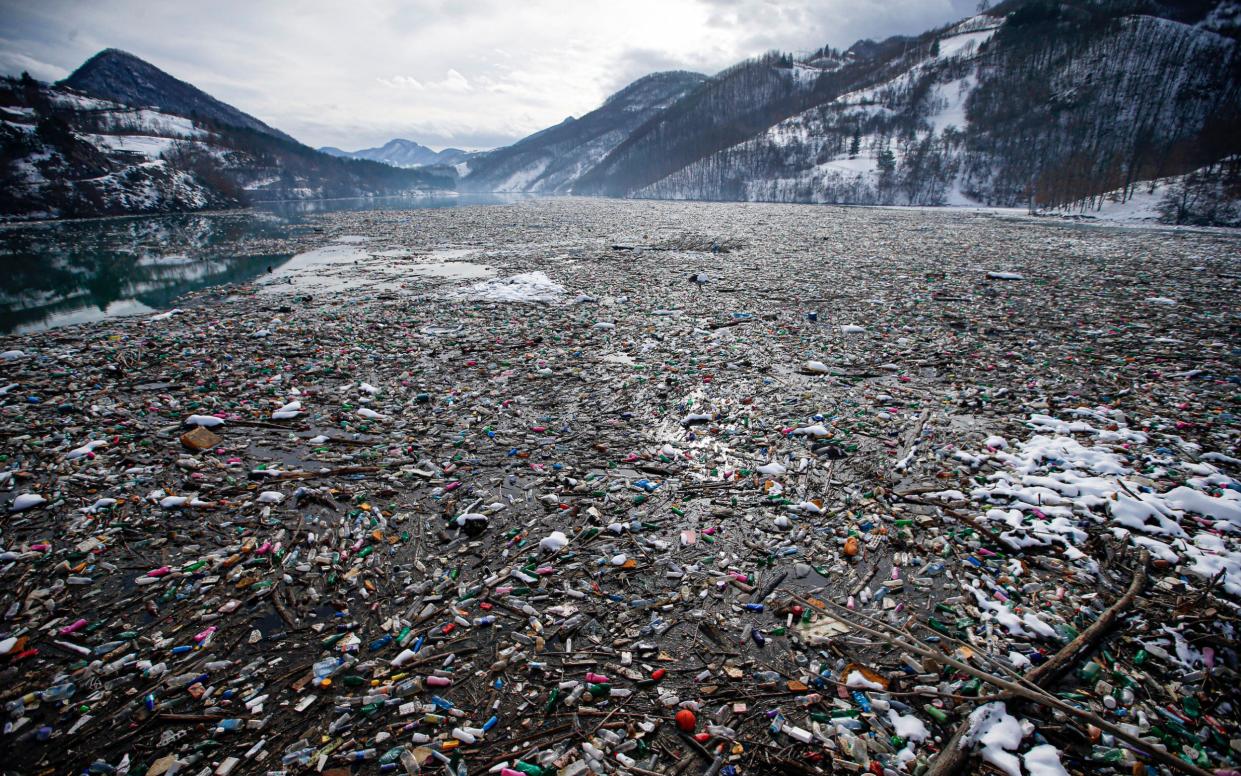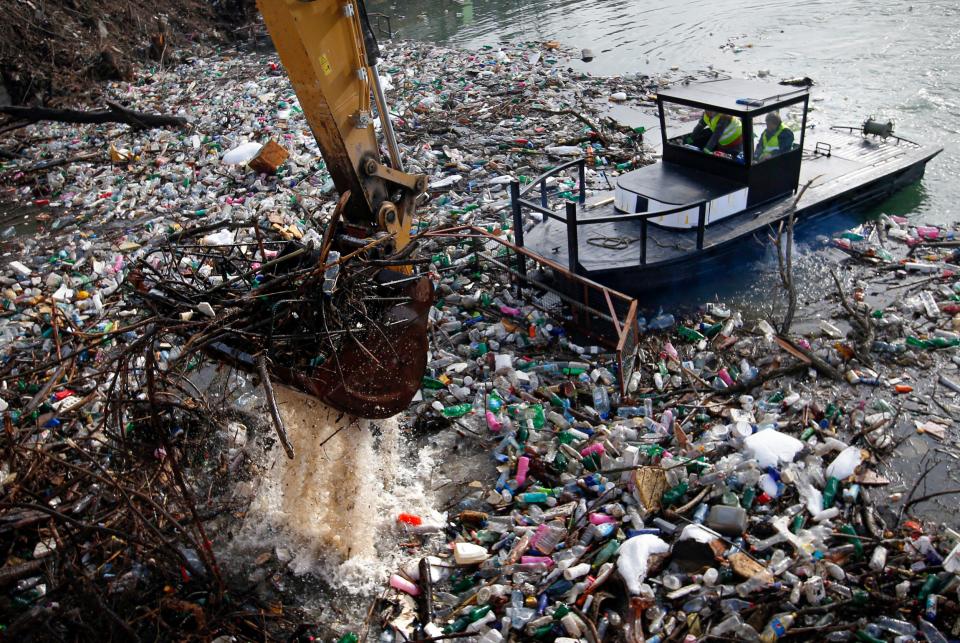Waste from overflowing landfills clogs Serbian lake

Tons of waste has accumulated in a Serbian lake after being swept downriver in a crisis caused by decades of neglect in eastern European countries.
Potpeć lake is filled with rubbish which flooded down the Lim River from towns in Montenegro and Serbia during recent wet and snowy weather.
The items polluting the lake include plastic bottles, rusty metal scraps and tree trunks, washed away from overfilled landfills and caught in the lake near the hydroelectric dam.
Predrag Saponjic, the Lim River hydropower plant system manager, said: "Based on a recent study, we found out that in these towns, in the five municipalities in Montenegro and three in Serbia, about 45,000 tons of waste are collected (per year). If only a fraction of that waste ends up in the Lim River, we get this."
Earlier this month the City of Uzice, which manages the Zlatibor District containing the river, said it had begun removing waste from the lake, and insisted that not all of it would go back into the overflowing landfill sites.
Plastic would be treated, bundled and sold, while wood and logs could be used as firewood, said Momir Milovanović, director of the regional center for waste management Duboko, which manages the landfill. A landfill expansion is expected to open in the summer, he said.

Eastern Europe's waste management problem presents a perennial issue for its hydroelectric power plants, a growing source of energy generation and Serbia's second-largest source of power behind coal.
Serbia and Bosnia-Herzegovina have by far the lowest recycling and composting rates for municipal waste in Europe with both at close to zero, according to figures collected by the statistical office of the EU.
In Bosnia a separate pile-up threatens the hydroelectric dam on the Drina River, near the eastern town of Visegrad. The Lim is one of the tributaries of the Drina.
Jugoslav Jovanovic, from Serbia's state-run Srbijavode company, which manages the country's water system, said that the problem stems from landfills which are located too close to rivers and are overfilled rather than closed down.
"If we find ourselves forced to do this year after year, then that's not really a solution," he said of the clearing operation. "We must find common ground and solve this by joining forces."
Both Serbia and Montenegro are EU candidate countries, but will have to bring their environmental policies more closely in line with the bloc's more stringent requirements.
Widespread reliance on coal means that air pollution is also a significant issue in the region.

 Yahoo News
Yahoo News 
